|
When they issued the country-wide community containment decree for coronavirus on the evening of Monday 9 March, I’m sure the last thing the Italian government had in mind was K&P’s car. My English friends had left it in the care of Europark, an excellent, inexpensive private car park five minutes’ walk from the terminal at Pisa Airport. K&P were in England, planning to return on 23 March. On the morning of Thursday 12 March I received a panicky email from P. Their flight had been cancelled; they didn’t know when they would be able to get back. What would happen to their car? When I phoned Europark, they were panicky too. They had been ordered to close as soon as possible. Their terms guarantee that the car park will be under video surveillance 24-hours a day. If they closed, they wouldn’t be able to fulfil this condition. They had to empty the car park by Saturday morning. Everyone except K&P had either managed to get back earlier to pick up their cars or would be back before Saturday. K&P’s car was the only one that would be left. We had to get it out. But how? I read the whole decree in Italian. It contained much interesting information and caring thoughts for Italian citizens, but nothing about cars marooned in car parks. The only conditions under which an individual was allowed to move from his or her home were:
For whichever reason you were travelling, you had to carry with you a self-declaration of the purpose of your journey. The penalty for not having one or lying was either three months in prison or a fine of 206 Euros. Already two people from Lucca had been checked by the police and fined. First brilliant idea: Maybe it was within the scope of my driver’s ‘proven need to work’. He could go with a colleague and drive the car up to me. He didn’t think so. His work is providing the public service of driving people from A to B, not driving someone else’s car. Second brilliant idea: Maybe we could find a car bodywork garage with a tow truck who would go get it. Surely it was within their ‘proven need to work’. My driver would phone his mate to find out whether he could do it and how much it would cost. He would also ask the police whether he himself could do the job under the terms of the decree. By now it was late Thursday afternoon, and they wouldn’t be open until Friday morning. Meanwhile, I was emailing P and phoning Europark to make sure nothing had changed there and to find out what they needed from K&P to release the car to someone else. P was also organising with neighbours down the hill to park the car at their house where they could keep an eye on it. On Friday morning my driver confirmed that his friend could pick up the car. It would cost a goodly sum, but at least the car would be free. The police had said it wasn’t within their authority to state whether my driver could do the job or not. I phoned the bodywork garage. They were busy all day Friday. They could go on Saturday. I phoned Europark. By Saturday they would be closed. Third brilliant idea: I phoned my car mechanic. If I ran an artisan car repair course, Roberto would be my man. He understood the problem immediately. He would ring his friend Stefano, who has a car roadside rescue business near Lucca. I could phone Stefano in five minutes. Stefano turned out to be the white knight of this saga. He could be at Europark at 3 pm with his low loader. What make of car was he to pick up? Me and cars. I’d ridden in the car, but had no idea. I remembered K&P talking about wanting a Jimmy, so that’s what I said. I needed the name of Stefano’s company for P’s email to Europark. Stefano pronounced it, and I heard what sounded like Boodado e Terrenche. It took some inventive searching on Google to find Bud e Terence. It seems that to liberate a car, you have to be an aficionado of Italian films. Of course I know many of the classics, but I’d never heard of this thin and corpulent duo who were starring in films from the ‘60s to the ‘80s, nor of the Bud & Terence film festival at Masone in Ligura. I sent the wording of the email for Europark to P, leaving blanks for the model of car and the registration number. She copied me into the email to Europark, but I didn’t read it. At 2.58 pm, Stefano rang me. He was at Europark, but the car they had given him wasn’t a Jimmy. Uh, oh. I checked P’s email. Sure enough, it wasn’t a Jimmy. It was a Diahatsu Terios. Stefano would be here in an ‘oretta’ (this should mean a ‘little hour’, but in fact means a little over an hour). He’d phone me from Topo Gigio bar and lunch place, a landmark at the bottom of our hill known by everyone for miles around, and I’d drive down to meet him and guide him to A&J’s house. Would the police be checking our tiny winding road? I prepared two self-declarations, one for going shopping at Bagni di Lucca (I could go buy something if necessary) and one for returning home. As it turned out, Stefano was already coming up the road as I headed down. What a hero! If you ever need roadside rescue anywhere in Italy or France (probably other countries too) — when we’re allowed to travel — give him a ring (+39 339 6239872).
2 Comments
Love this story! I had just left (11 Mar), otherwise you can always call me to help with an adventure such as this when I'm there. Aldo, a friend of Simonetta, who runs the marketo in Diecimo who would have been a good one too. He's a car guy that I've been talking with about car stuff... (OMG, as I write that - I'm feeling more italian). Best wishes!
Reply
Erica
31/3/2020 15:37:03
Thanks, Clark. The problem was that under the lockdown law I had to find someone whose proper job it was to move other people's cars from one place to another. That's why I need the road rescue service. I highly recommend Stefano—very professional. Let me know when you're next out.
Reply
Your comment will be posted after it is approved.
Leave a Reply. |
Email Subscription
Click to subscribe to this blog and receive notifications of new posts by email. AuthorErica Jarman Categories
All
Archives
October 2023
|
|
copyright 2017 sapori-e-saperi.com | all rights reserved
|
Website by Reata Strickland Design


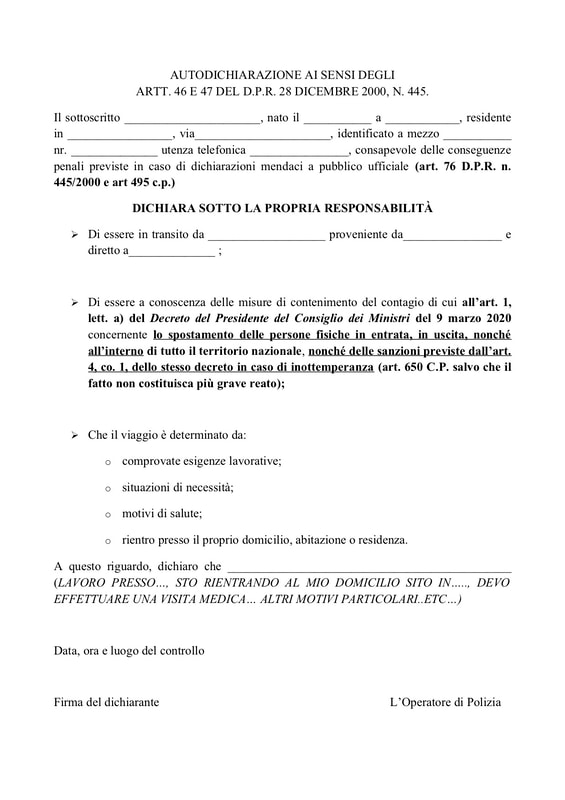
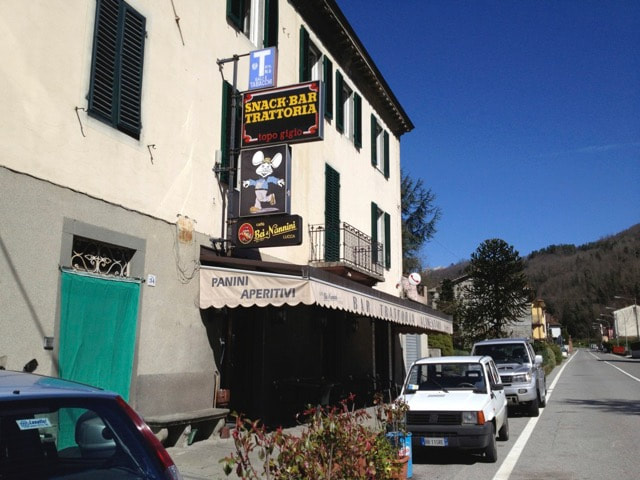
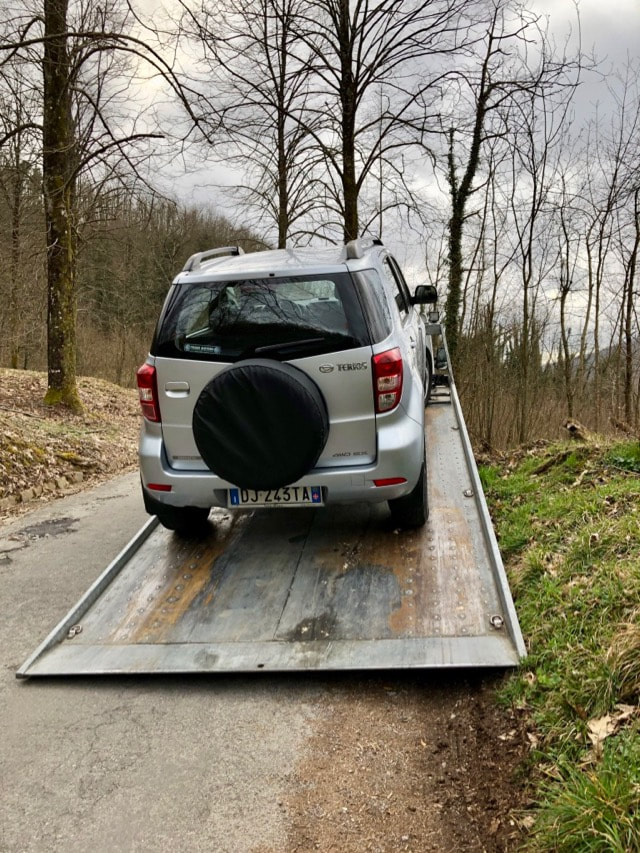
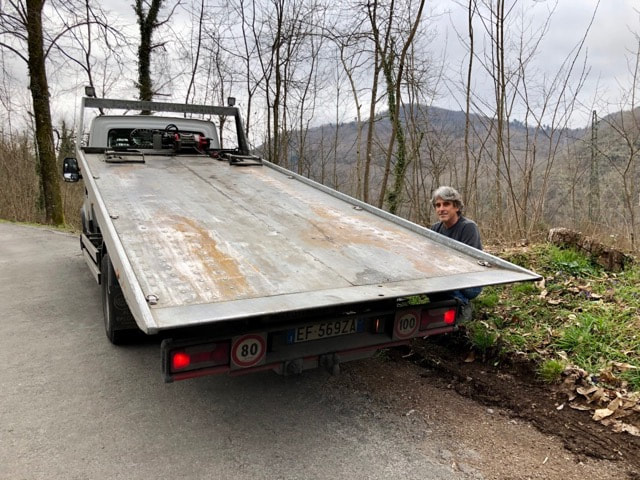
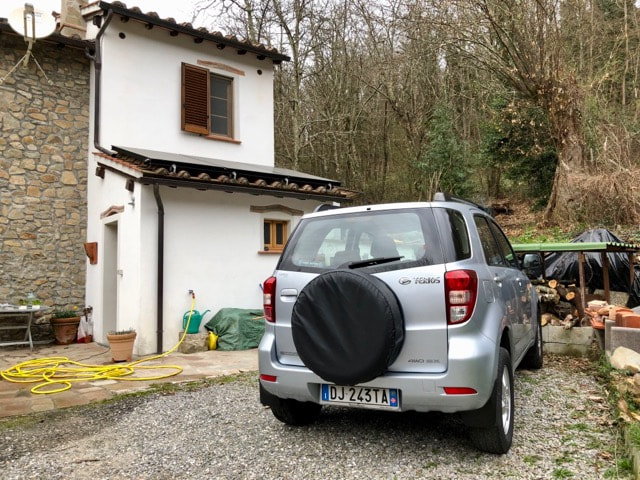
 RSS Feed
RSS Feed



